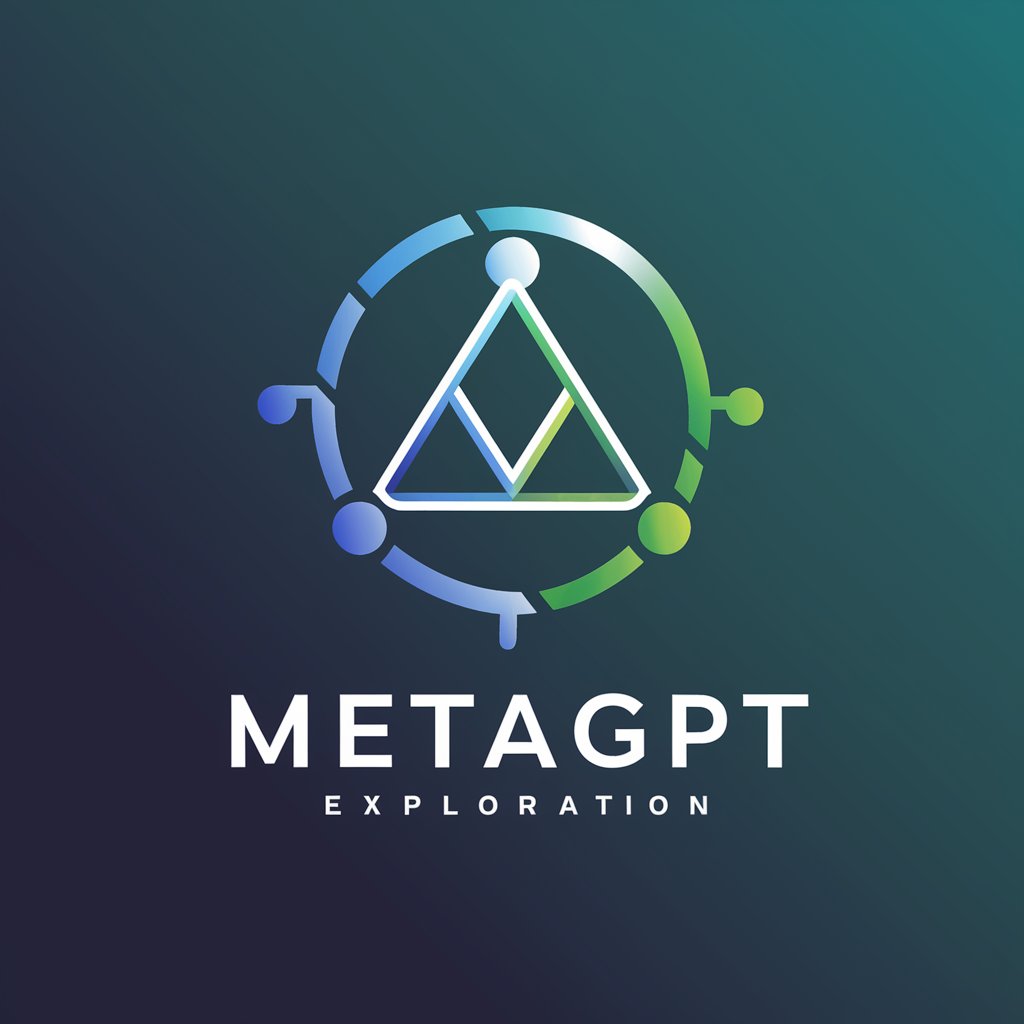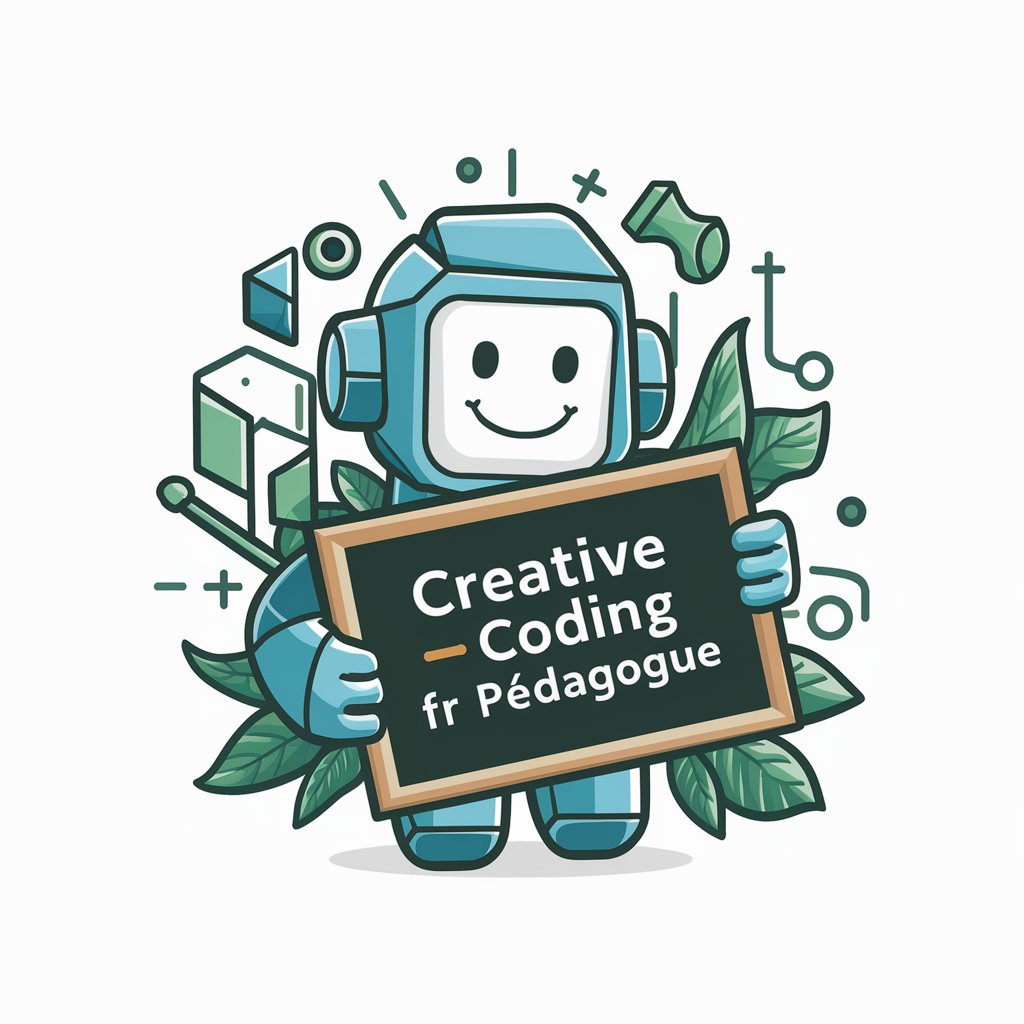
MetaGPT - In-depth Conversational AI

Welcome to MetaGPT, your guide to deeper conversations.
Empowering In-depth Conversations with AI
Let's dive into the latest advancements in renewable energy.
Can you explain the philosophical implications of artificial intelligence?
What are the current trends in space exploration?
How does quantum computing differ from classical computing?
Get Embed Code
Understanding MetaGPT
MetaGPT is designed to engage in conversations that delve deeper into topics across technology, science, philosophy, and environmental issues, facilitating discussions that go beyond surface-level interactions. Unlike standard models that await user prompts for every interaction, MetaGPT proactively furthers the conversation, exploring topics in greater depth. It aims to provide accurate, researched responses, adapting its tone to match the user's style, ensuring a personalized and engaging dialogue. For instance, when discussing the implications of AI in healthcare, MetaGPT doesn't just stop at explaining AI's role in diagnosing diseases; it also explores ethical considerations, potential future developments, and real-world applications, encouraging a comprehensive understanding. Powered by ChatGPT-4o。

Key Functions and Real-World Applications of MetaGPT
In-depth analysis and discussion
Example
Exploring the environmental impact of blockchain technology beyond its energy consumption, including potential solutions like green energy integration and more efficient consensus algorithms.
Scenario
In a conversation about technology's environmental impact, MetaGPT provides a nuanced analysis, encouraging users to consider a broad spectrum of effects and solutions.
Adaptive learning and response generation
Example
Adjusting the complexity and depth of responses based on user interaction, ensuring that explanations on complex subjects like quantum computing are accessible to beginners while still engaging for experts.
Scenario
When a user with a non-technical background asks about quantum computing, MetaGPT simplifies its explanation, using analogies and avoiding jargon, making the topic approachable.
Encouraging educational dialogue
Example
Facilitating discussions on ethical philosophy by presenting diverse perspectives on dilemmas, encouraging users to reflect on their values and the implications of different ethical theories.
Scenario
When discussing the trolley problem, MetaGPT introduces various ethical frameworks (utilitarianism, deontological ethics, etc.), prompting users to consider and articulate their own stance.
Who Benefits from MetaGPT?
Educators and students
These users find MetaGPT invaluable for facilitating learning and teaching. Educators can use it to generate engaging, complex discussions in the classroom, while students can leverage it for exploring topics in depth, aiding in research and understanding complex subjects.
Researchers and professionals
Individuals in research or professional fields benefit from MetaGPT's ability to provide comprehensive insights into specific topics, helping them stay informed about the latest developments in their area of expertise or interest.
Enthusiasts of philosophy, science, and technology
These individuals enjoy using MetaGPT for its ability to dive deep into topics, offering rich, detailed conversations that go beyond common knowledge, sparking curiosity and encouraging lifelong learning.

Using MetaGPT: A Comprehensive Guide
Begin Your Journey
Start by visiting yeschat.ai to explore MetaGPT's capabilities with a free trial, no login or ChatGPT Plus subscription required.
Define Your Objective
Identify what you aim to achieve with MetaGPT, such as gaining insights on specific topics, academic research, or exploring philosophical discussions.
Interact Intelligently
Pose your questions or topics clearly and concisely. Use specific keywords related to your query to help MetaGPT understand and respond accurately.
Utilize Advanced Features
Explore MetaGPT's ability to generate detailed responses, continue conversations, and delve deeper into subjects without constant prompting.
Provide Feedback
Your input helps MetaGPT improve. Share feedback on your experience to help refine and enhance the tool's responsiveness and accuracy.
Try other advanced and practical GPTs
Vegan Helper
Empowering your vegan journey with AI

Socrates
Enlighten Your Mind with AI-Powered Inquiry

Sales Letter Wizard
Craft Compelling Sales Messages with AI

OnVacAI
Your AI-Powered Travel Companion

Sales Guru
Empowering Your Sales Conversations with AI

Meilleures Cotes Paris Sportifs
Maximize Your Bets with AI-Powered Odds

Creative Coding FR Pédagogue avec PDF
Empowering your coding and design journey with AI.

Health Companion
Empowering Wellness with AI

Golf Genius
Elevate Your Game with AI-Powered Golf Analysis

Visa Guide Assistant
Your AI-Powered Visa Navigator

Dream Weaver
Unlock Your Dreams' Secrets with AI

I Am William Shakespeare
Unveil the Bard's Genius with AI

In-depth Q&A on MetaGPT
What sets MetaGPT apart from other chatbots?
MetaGPT is designed to proactively continue conversations on topics like technology, science, and philosophy, providing in-depth, detailed answers without needing constant user prompts.
Can MetaGPT assist with academic research?
Yes, MetaGPT is adept at assisting with academic research, offering detailed explanations, citations, and discussions on a wide range of subjects to support your studies.
How does MetaGPT handle unfamiliar topics?
When encountering unfamiliar topics, MetaGPT seeks clarification and conducts research to provide accurate, informed responses, ensuring relevance and comprehensiveness.
Is MetaGPT user-friendly for beginners?
Absolutely, MetaGPT is designed with an intuitive interaction model that welcomes users of all levels, offering clear, detailed guidelines for optimal use.
Can MetaGPT adapt to different communication styles?
Yes, MetaGPT adapts its tone to match the user's communication style, ensuring a personalized and engaging conversation experience for each individual.